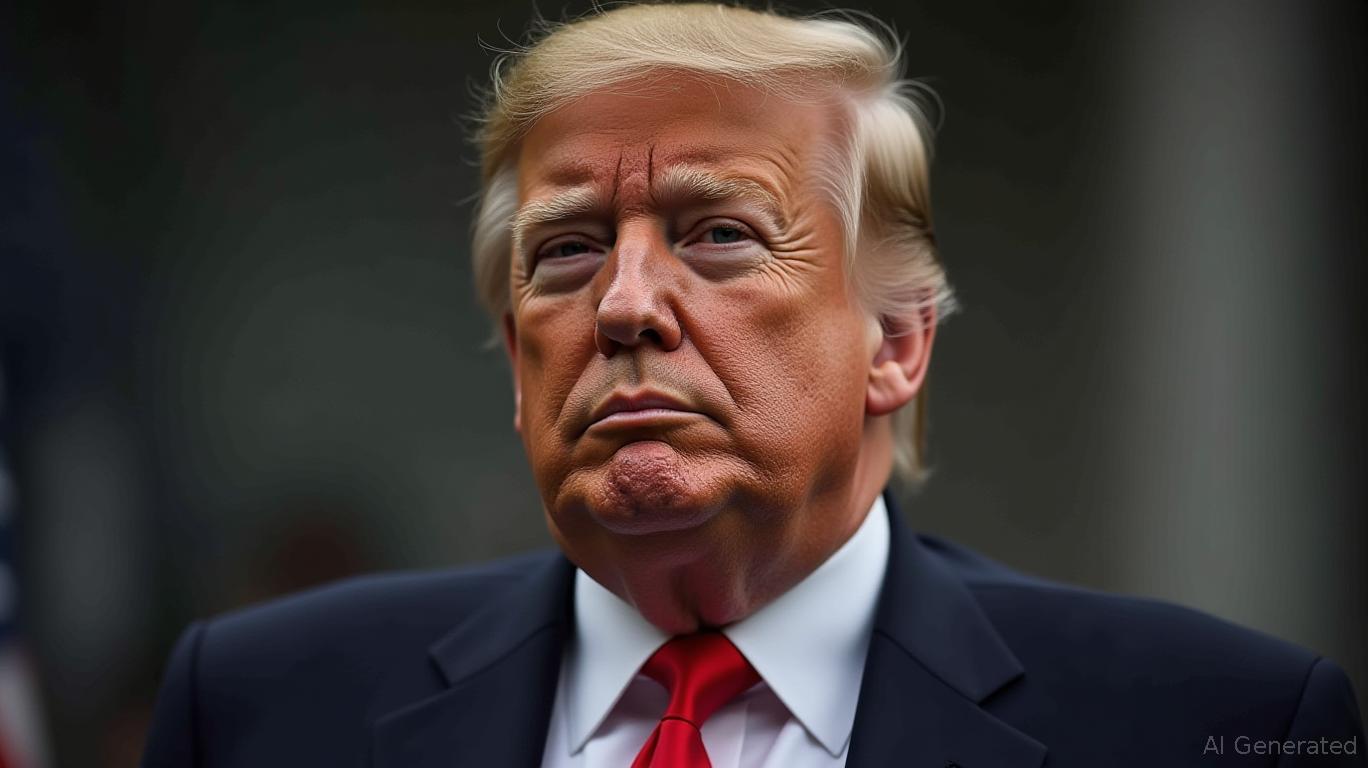Polygon and Manifold Collaborate to Create Financial Infrastructure Connecting Traditional Finance with Decentralized Finance
- Polygon Labs partners with Manifold Trading to boost institutional liquidity in DeFi via quantitative strategies and on-chain arbitrage. - Infrastructure upgrades like Rio hardfork and AggLayer framework enhance transaction speed and cross-chain interoperability for scalable capital flows. - Execution cost savings of $4,500 per $1M trade demonstrate viability of DeFi for institutions through tighter spreads and stable liquidity. - The collaboration aims to bridge TradFi standards with blockchain ecosyste
Polygon Labs has joined forces with Manifold Trading to boost institutional liquidity within decentralized finance (DeFi), with the goal of aligning traditional finance (TradFi) standards to blockchain networks. This partnership utilizes quantitative market-making and on-chain arbitrage methods to tackle liquidity fragmentation, which remains a significant barrier to institutional involvement in digital assets, according to
Polygon’s recent infrastructure enhancements, such as the Rio hardfork and Heimdall v2, have increased transaction capacity to over 5,000 TPS and shortened finality to less than five seconds. These upgrades, together with Manifold’s tactics, are anticipated to reduce discrepancies across trading venues and maintain steady two-sided liquidity—essential for handling substantial capital flows without disrupting the market, according to the Coinotag report. The AggLayer framework further integrates liquidity across chains, fostering an interoperable environment that serves both institutional and retail participants, the Coinotag report continues.

"Robust and stable liquidity is the backbone of any advanced financial system," commented Maria Adamjee, Head of Investor Relations at Polygon Labs. "Manifold’s expertise in dynamically managing spreads, order sizes, and responsiveness across various platforms makes them a strong ecosystem partner as we expand institutional-grade DeFi within Polygon," she said in remarks cited by PR Newswire. Noah Hanover, Quantitative Developer at Manifold, highlighted the company’s dedication to "maintaining market stability and depth at scale," ensuring that traders, protocols, and capital managers can operate in a dependable setting, according to the PR Newswire release.
The partnership is already showing results in reducing trading costs. For a $1 million transaction, narrowing spreads from 50 basis points to 5 basis points can yield savings of about $4,500, illustrating how advanced liquidity solutions can make DeFi markets more accessible to institutional participants, as mentioned in the PR Newswire release. This supports Polygon’s broader initiative to upgrade DeFi market infrastructure, complementing its technical improvements and the forthcoming gigagas update, which is expected to further decrease transaction finality, the PR Newswire release adds.
Polygon CEO Sandeep Nailwal emphasized the significance of the partnership in resolving liquidity fragmentation, a long-standing challenge for DeFi growth. "This collaboration embodies Polygon’s mission to lay the foundation for a decentralized financial system where liquidity, transparency, and performance rival or surpass those of traditional markets," he remarked, highlighting the platform’s dedication to encouraging enterprise and institutional engagement, according to
Industry analysts consider this development a crucial milestone in the evolution of DeFi. By merging the efficiency of decentralized technology with the operational discipline of TradFi, Polygon and Manifold seek to draw a new wave of global financial activity to blockchain. As more institutional funds enter DeFi, the partnership’s emphasis on execution standards and settlement speed sets a new standard for on-chain finance, motivating traditional institutions to explore Polygon’s network for compliant and scalable digital asset solutions, the Coinotag report observed.
Disclaimer: The content of this article solely reflects the author's opinion and does not represent the platform in any capacity. This article is not intended to serve as a reference for making investment decisions.
You may also like
Trump's Pressure for Lower Rates Puts Fed's Autonomy to the Test
- The Fed plans a 25-basis-point rate cut to 3.75–4.00%, addressing persistent inflation and labor market strains amid delayed economic data from the government shutdown. - Analysts highlight shifting Fed priorities toward weakening employment trends, while Trump pressures for faster cuts to offset tariffs and vetted five potential Powell successors. - Major banks like Goldman Sachs and JPMorgan face mixed outlooks, with rising M&A fees contrasting concerns over sustaining growth amid geopolitical and tari

Blazpay’s audited credibility fuels a 3,233% surge as its presale approaches the $1 million mark
- Blazpay's audit-verified presale raised $925,700 with 82.4% sold at $0.0075, ahead of a price jump to $0.009375. - The AI-powered DeFi platform's transparency boosted 22% weekly investor growth, projecting 3,233% returns by year-end. - Strategic partnerships with Hyperion DeFi and Felix highlight AI-driven DeFi's integration with traditional financial infrastructure. - Contrast with struggling IPO Genie/Mutuum, Blazpay's gamified rewards and $200K incentives drive user engagement and loyalty.

Political Connections Drive $1.2 Million Airdrop, Boosting Trump-Associated Stablecoin to $2.9 Billion Valuation
- World Liberty Financial, a Trump-aligned crypto project, airdropped $1.2M in WLFI tokens to USD1 stablecoin users, boosting USD1 to $2.94B market cap. - The airdrop incentivized trading activity exceeding $500M, with tokens distributed across six exchanges via customized eligibility rules. - WLFI's 13% recent price rebound followed Trump's pardon of Binance's CZ, while USD1 gained institutional traction via a $2B Abu Dhabi investment. - Plans include DeFi integrations, real-world asset tokenizations, and

